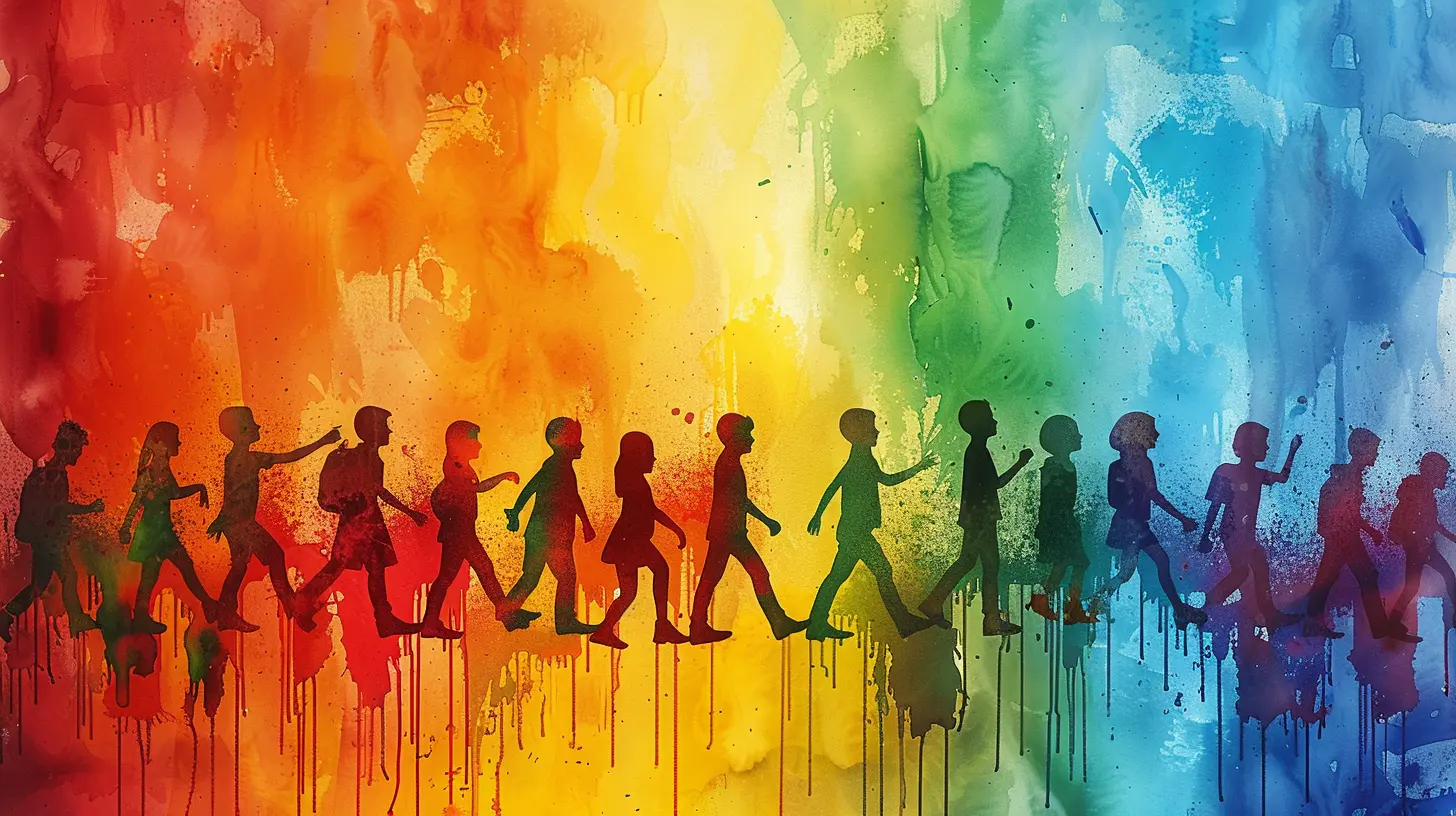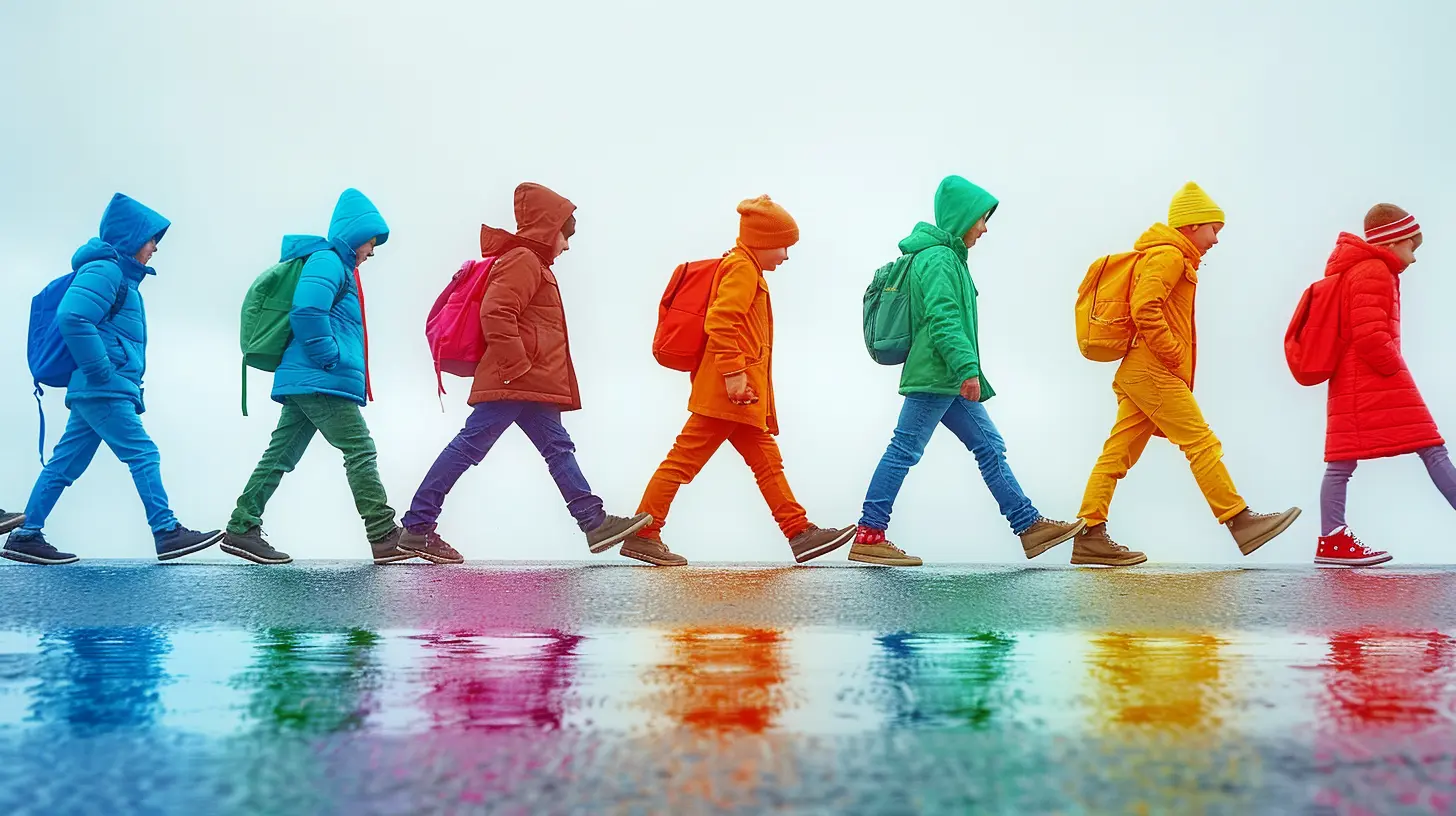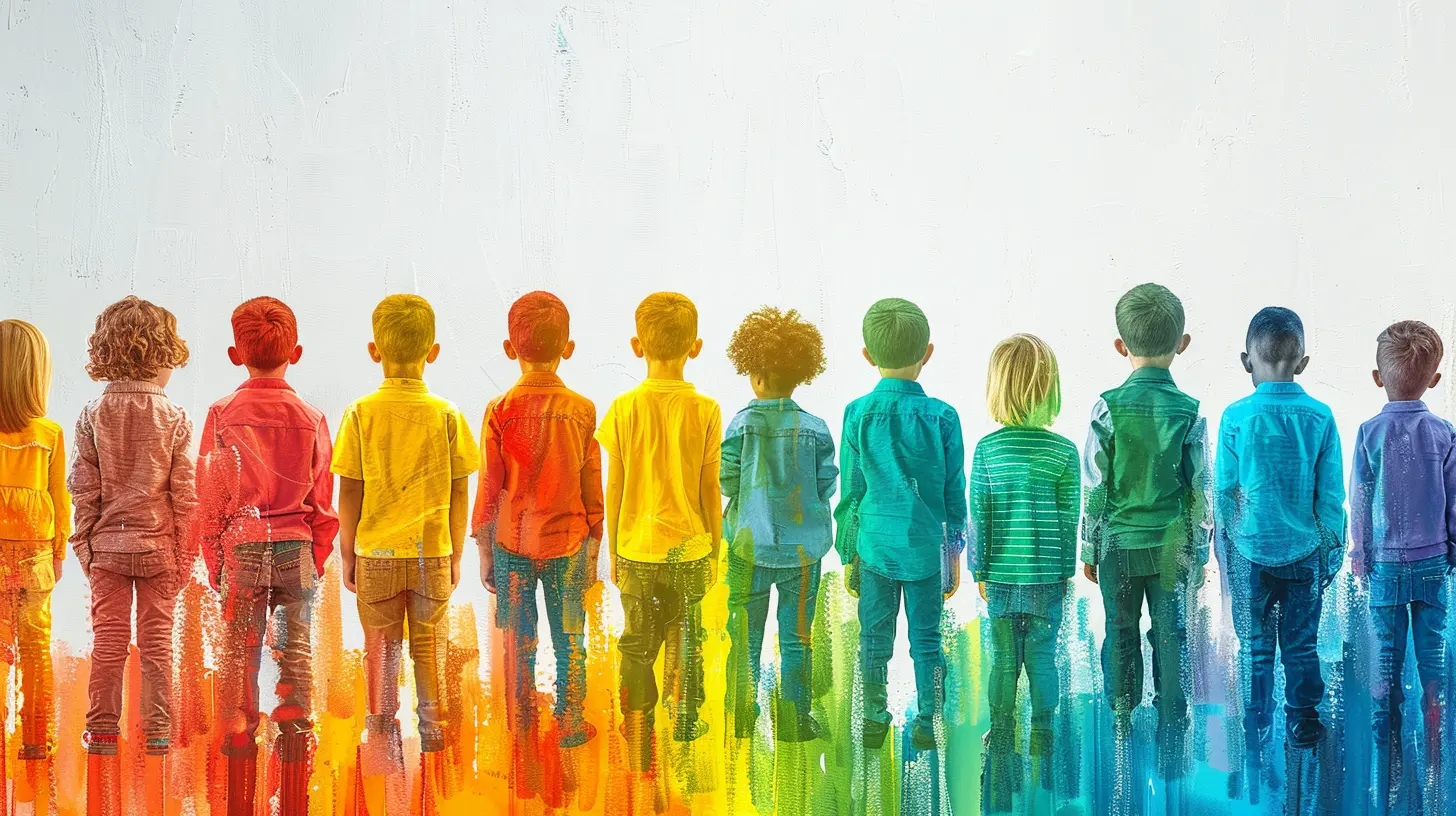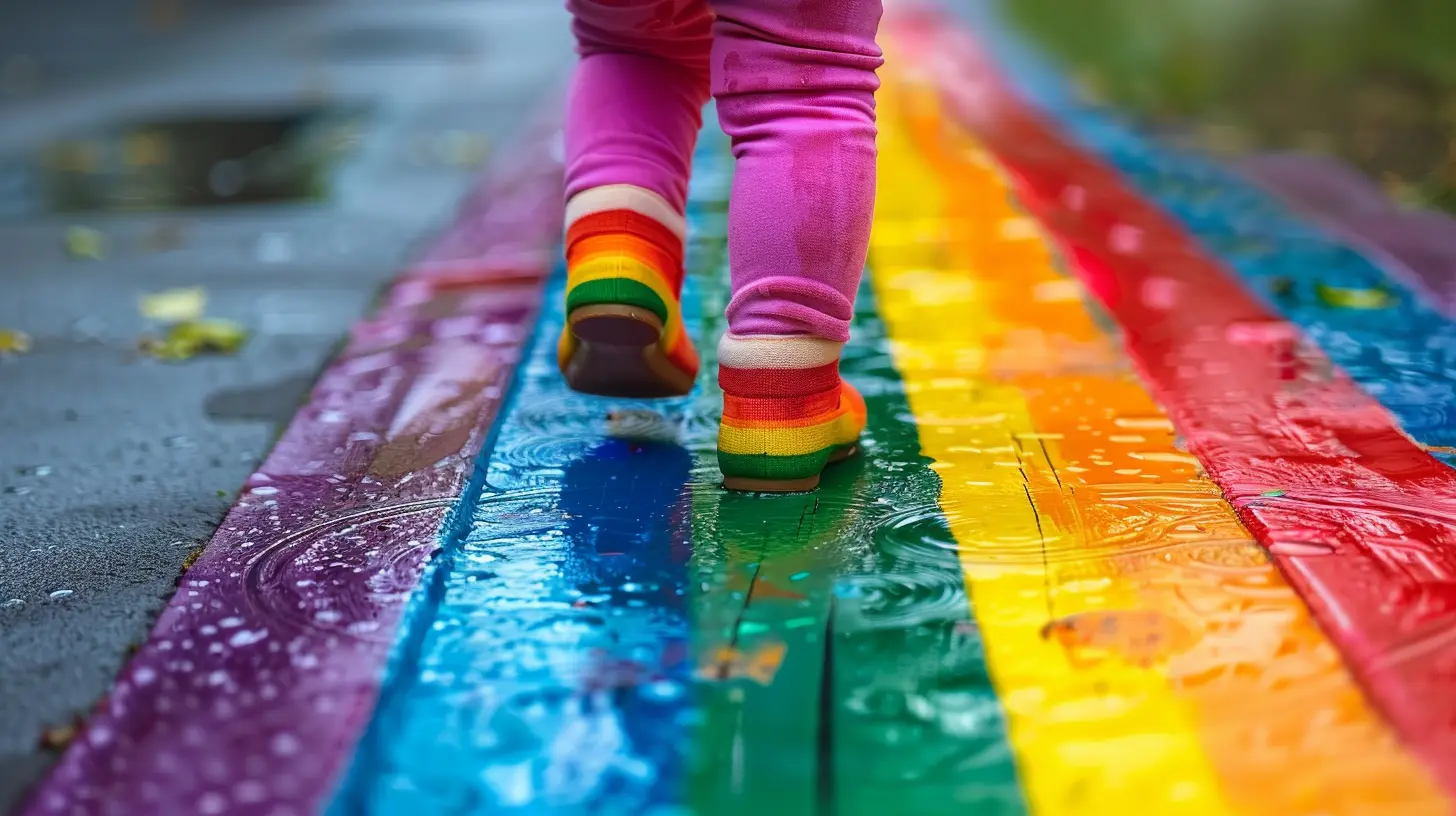Raising Boys Who Value Diversity and Inclusion
8 November 2025
Let’s face it — raising boys today looks a lot different than it did a generation ago. The world is more connected, more aware, and (thankfully) more focused on celebrating differences. But with that awareness comes a big responsibility for us parents. How do we raise boys who genuinely value diversity and inclusion?
It’s not just about telling them to be kind or fair. It’s about equipping them with the tools and mindset to respect, embrace, and even champion the differences they see in others. That may sound like a tall order, but trust me — it starts with the little conversations, the ones you have in between bites of cereal or during car rides to soccer practice.
So grab a coffee (or let’s be honest, reheat the one you forgot you made), and let’s talk about how we can nurture inclusive, open-hearted young men.
Why It Matters More Than Ever
Before we dive into the hows, let’s talk about the why.You may be wondering — is diversity and inclusion really something kids need to be thinking about right now? Shouldn’t they just be, well… kids?
Absolutely, they should. But boys are also watching and listening to everything around them. Whether it's media, school, sports, or casual conversation, they’re soaking it all in like little sponges. And if we’re not guiding those impressions early, someone else will — and not always in a positive way.
The truth is, teaching our boys to value diversity isn't just good for society. It’s good for them. Boys who love and accept others for who they are tend to form deeper relationships, have broader worldviews, and grow into empathetic leaders. That’s a pretty great return on investment if you ask me.
Start With The Basics: What Is Diversity and Inclusion?
Here’s a little tip — you don’t need flashcards or a whiteboard to teach this stuff.In our house, we define diversity as "all the ways people are different," and inclusion as "making sure everyone feels like they belong." Simple enough, right?
This can cover everything from race, gender, ability, and religion, to economic background, family structure, and even the foods people eat. The goal isn’t to list every label — it’s to help our boys understand that humans come in many forms, and every single one deserves respect.
Lead By Example
This one’s big. You can talk about acceptance all you want, but if your child hears you making a joke at someone else's expense or sees judgment in your actions, it'll stick.Kids are mini mirrors. They reflect what they see.
So we have to check ourselves — our language, our biases, even our friendships. Ask yourself:
- Are we surrounding our family with diverse voices and experiences?
- Do we value fairness over winning in everyday moments?
- Are we calling people in, rather than calling them out?
When we model inclusive behavior, we create the blueprint for what being a kind, open-minded man looks like.
Normalize Differences Through Everyday Conversations
One of the best ways to prevent bias from forming is by making diversity feel normal — not “other” or “weird.”There’s no special occasion needed. Use moments in your day-to-day life to point out and celebrate differences:
- Reading a book? Point out how the characters look or live differently from your child.
- Watching a movie? Talk about how the story represents people from different backgrounds.
- Walking in your neighborhood? Mention the languages you hear, or the holidays people celebrate.
Keep the tone curious and open. Phrases like, “Isn’t it cool how everyone brings something different to the table?” can go a long way.
Help Them Identify Bullying and Exclusion
Let’s be real for a second — boys can be rough on each other sometimes. And not just physically. Words cut deep, especially when they’re targeting someone’s identity.That’s why it’s so important to teach your son how to recognize exclusion — and speak up against it.
Talk openly about:
- What exclusion looks like (ignoring someone, making fun of their culture, using slurs)
- How it feels to be left out
- Why silence can sometimes send the wrong message
Role-playing can help too. Help them practice what they might say if they see someone being left out:
“Hey, that’s not cool,” or “Come sit with us,” or even just “Are you okay?”
You want them to see themselves not just as bystanders, but as protectors of kindness.
Diversify Their Media
We often underestimate how powerful books, shows, and movies can be in shaping our kids’ views of the world. If the media they consume only shows people who look or live like them, they’ll miss out on so much richness.Try this:
- Put books with diverse characters (and authors!) on their nightstand
- Watch films that feature different cultures, languages, and family structures
- Listen to music from around the globe together
The goal? Make variety the norm, not the exception.
Bonus: This type of media exposure builds empathy in a natural, nearly effortless way. It’s like feeding their hearts and minds with understanding, one page or playlist at a time.
Talk About Privilege Without Shame
Okay, I know this can be a sticky subject. When we talk about privilege — especially with boys who may have more of it — it can feel uncomfortable.But it doesn’t have to be.
We can teach our sons that having privilege isn’t something to feel guilty about. It just means we have certain advantages others may not. And we can use those advantages to help others, speak up, and make things fairer.
Frame it like this:
“If you have a loud voice, use it for someone who’s not being heard.”
“If you're standing on a tall ladder, reach down and pull someone up.”
We’re not pointing blame — we’re handing over tools.
Encourage Diverse Friendships
Friendships are the perfect training ground for inclusion.Encourage your son to befriend kids from various walks of life — and celebrate those bonds when they form. Invite classmates over who might not look or talk like your family. Sign up for sports teams or clubs outside your usual circle.
The goal is not to force friendships, but to widen the net.
The more diverse your child’s social circle is, the more “normal” diversity becomes in their world.
Teach Them to Ask Questions — And Be Okay Not Having All the Answers
Kids are naturally curious, which is a gift when it comes to learning about people who are different from them. But sometimes, that curiosity is met with adults who shush or redirect instead of embracing the teachable moment.Let’s change that.
If your son asks, “Why does that person wear a turban?” or “Why does he have two dads?” — don’t panic. Say, “Great question!” and answer it honestly and age-appropriately. And if you don’t know, say so. Then look up the answer together.
Normalize not having all the answers — but always being willing to learn.
That’s one of the most powerful lessons you can pass on.
Inclusion Starts at Home
This might be the most important piece of all. If we want our boys to value inclusion in the outside world, our home needs to feel inclusive too.That means:
- Respecting everyone’s voice (yes, even your youngest when he disagrees)
- Admitting when we mess up
- Making room for emotions
- Celebrating each family member’s uniqueness
Our homes are the first place boys learn what love, respect, and inclusion feel like. If it’s safe there, they’ll carry that safety out into the world.
Keep the Conversation Going
There’s no final exam for this stuff.Raising boys who value diversity and inclusion is an ongoing journey. It’s filled with small wins, awkward moments, honest mistakes, and lots of growth — both theirs and ours.
So keep the dialogue open. Celebrate progress. Apologize when needed. And most of all, remind your son that being kind, inclusive, and curious about others isn’t just “nice” —
It’s brave.
It’s powerful.
And it's exactly the kind of man the world needs more of.
Final Thoughts
Raising inclusive boys in a complicated world may feel daunting at times. But you don’t have to be perfect. You just have to be present, consistent, and willing to grow right alongside them.It’s not about creating little experts in diversity. It’s about raising big-hearted human beings who see the value in every person they meet.
So here’s to raising boys who don’t just tolerate differences — they respect them, celebrate them, and fight for a world where everyone feels like they belong.
And honestly? That starts with us.
all images in this post were generated using AI tools
Category:
Raising BoysAuthor:

Noah Sawyer
Discussion
rate this article
1 comments
Victoria Graham
Sure, because teaching boys to value diversity is as easy as getting them to share their toys—good luck with that!
November 12, 2025 at 4:51 PM


